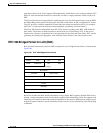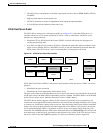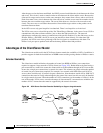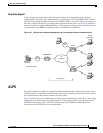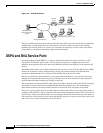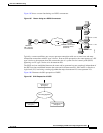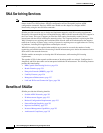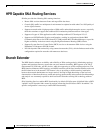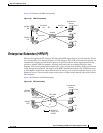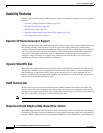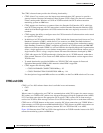
Overview of IBM Networking
Benefits of SNASw
BC-233
Cisco IOS Bridging and IBM Networking Configuration Guide
78-11737-02
Scalable APPN Networks
With the Branch Extender (BEX) function, the number of network nodes and the amount of broadcast
traffic are reduced.
IP Infrastructure Support
Limiting SNASw routers to the data center and using the BEX function eliminates SNA broadcasts from
the IP network. With Enterprise Extender (EE), SNA traffic is routed using the IP routing infrastructure
while maintaining end-to-end SNA services.
Reduced Configuration Requirements
By eliminating NNs and using the BEX function, configuration tasks are minimized. Additionally, Cisco
has enhanced its auto-configuration capability to eliminate previously required commands.
Network Design Simplicity
By placing all SNA routers in the data center, few SNA routers are required, and they can be easily
configured using virtually identical configurations.
Improved Availability
By adding Cisco-unique capabilities to connect-out and distribute traffic across multiple ports, access to
resources is improved and traffic can be distributed across multiple ports. Additionally, by supporting
the newest HPR Adaptive Rate-Based (ARB) flow control algorithm, bandwidth management for SNA
traffic is improved.
Increased Management Capabilities
Two new traces, interprocess and data-link, provide an easier way to view SNASw activity. The APPN
Trap MIB allows the user to notify the operator in event of a debilitating problem. Console message
archiving provides better tracking of network activity. The ability to format traces in a format so that
they are readable by other management products simplify network management because results are more
readily available.
Architectural Compliance
Even though SNASw is easier to use and SNASw networks are easier to design, SNASw interfaces with
SNA implementations on the market: upstream NNs, end nodes (ENs), low-entry networking (LEN)
nodes and PU 2.0. It also provides full DLUR support to allow dependent PU and LU traffic to flow over
the APPN network to SNA data hosts.



